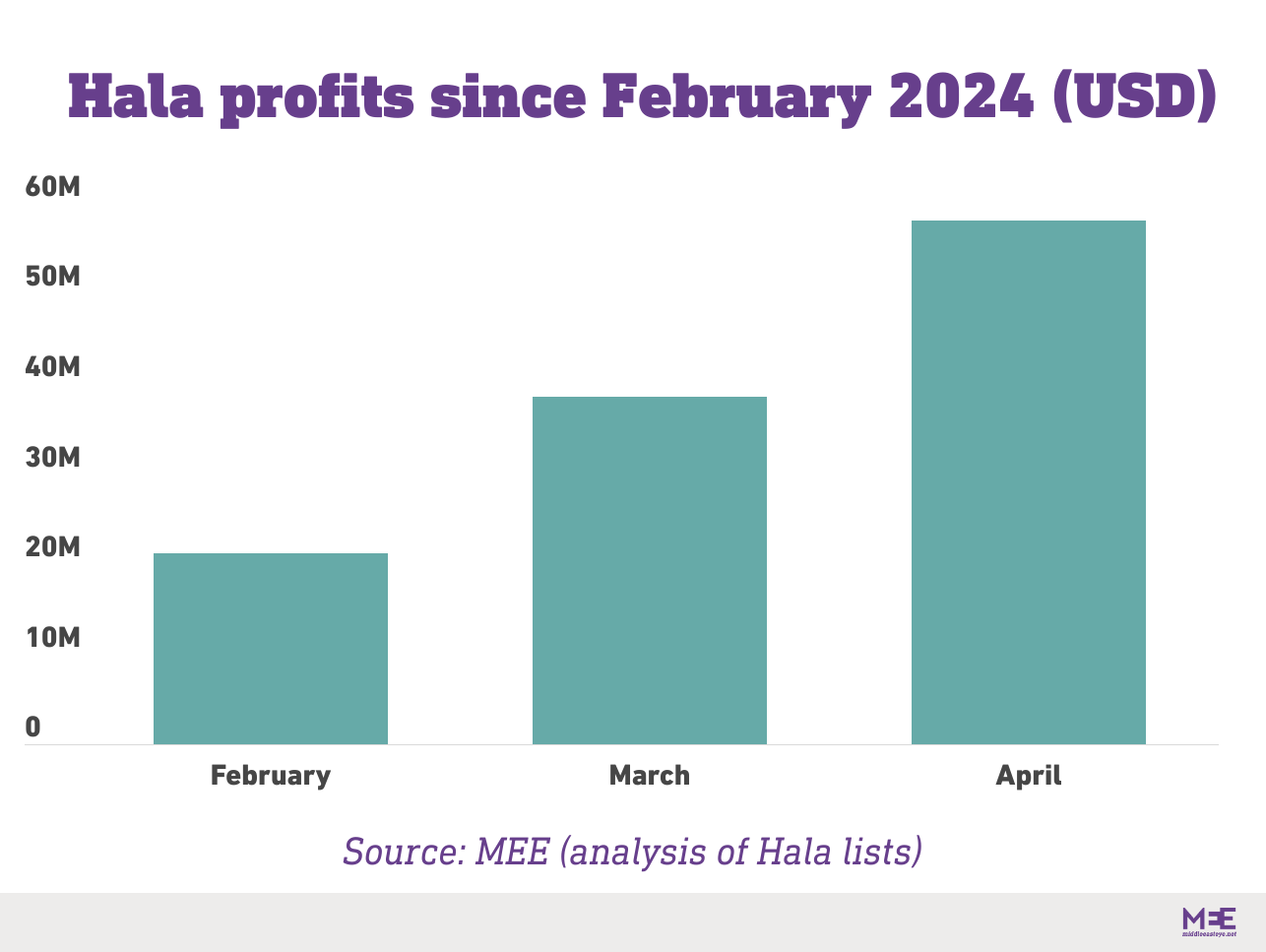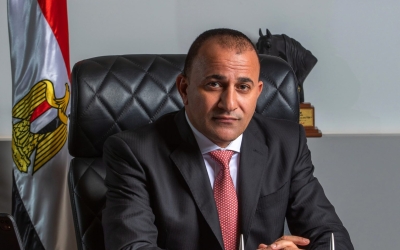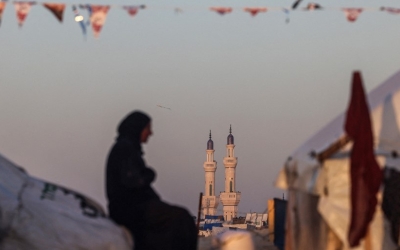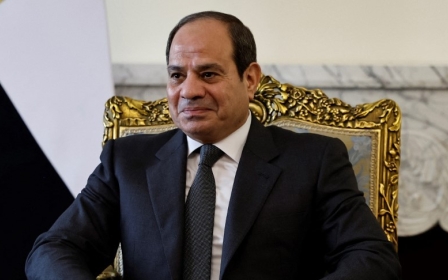An Egypt firm is making $2m a day from Palestinians fleeing Israel's war on Gaza
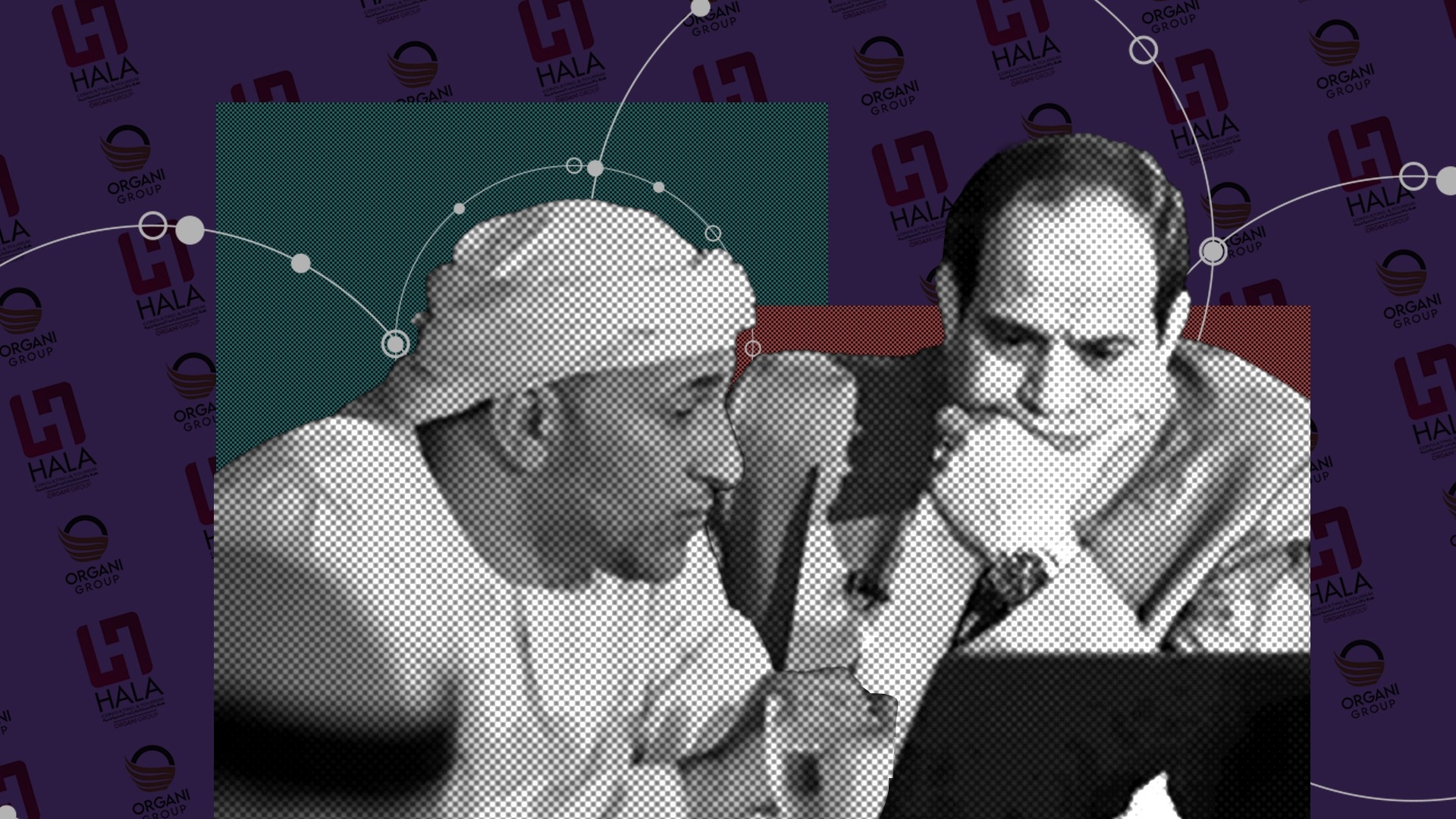
A company owned by an influential Egyptian businessman and ally of President Abdel Fattah el-Sisi is making around $2m a day from Palestinians fleeing Israel's war on Gaza, Middle East Eye can reveal.
Hala Consulting and Tourism Services, a firm owned by Sinai tribal leader and business tycoon Ibrahim al-Organi, has been charging Palestinians crossing from Gaza's Rafah to Egypt at least $5,000 per adult and $2,500 for children under 16.
It has a monopoly on providing transfer services at the Rafah crossing, the only Gaza exit not bordered with Israel and the single route out of the coastal enclave for Palestinians.
In the past three months alone, the company is estimated to have made a minimum of $118m, or 5.6 billion Egyptian pounds, from desperate Palestinians trying to leave war-torn Gaza.
Despite international media scrutiny on Hala and Organi in recent months, including numerous reports by Middle East Eye, the firm doubled its profits from Palestinians in April, with the average daily fees exceeding $2m.
New MEE newsletter: Jerusalem Dispatch
Sign up to get the latest insights and analysis on Israel-Palestine, alongside Turkey Unpacked and other MEE newsletters
MEE's analysis of the travellers list published online by Hala reveals that last month the company may have earned at least $58m from around 10,136 adults and 2,910 children who crossed the border via its "VIP list".
The daily average of $2m per day in April is roughly double what it is estimated to have earned daily in March.
The largest recorded profits for April were on Tuesday, when it appears Hala made at least $2.3m that day alone from Palestinian refugees.
By the end of this year, if the April average continues, the company may earn well over half a billion dollars from the so-called VIP list of people Hala is transferring across the Gaza-Egypt border.
Hala's "VIP" transfer service was first recorded on 2 February.
Before that, Palestinian and Egyptian sources told MEE that several intermediaries were involved in coordinating the exit of Palestinians in a haphazard, decentralised way.
Before February, Palestinians were charged up to $11,000 per adult to leave Gaza, until Hala monopolised the business and standardised fees.
Prior to the war, Hala charged everyone exiting Gaza via the Rafah crossing $350 per person, but the price has increased 14-fold for Palestinians.
Based on the lists of travellers published since 2 February, MEE can reveal that Hala’s profits from Palestinians may have been at least $21m in February, $38.5m in March and $58m in April.
The count is based on 23 published lists from February, 30 from March and 30 from April.
These estimates do not factor in profits potentially made in the first four months of the war, when the Rafah crossing business had not yet been monopolised by Hala.
There is no public record for Hala's profits between 7 October, when the war began, and the end of January.
According to the Palestinian ambassador in Cairo, Diab Allouh, an estimated 80,000-100,000 Palestinians have fled Gaza via Egypt since the war began.
The income earned by Hala and other Organi companies is not subject to any known oversight, and no public records are available to scrutinise where the money is spent or who benefits from it.
Mohannad Sabry, an Egyptian writer and Sinai expert, said it is not surprising that the Egyptian state is not doing anything to stop Organi from taking advantage of Palestinians' desperation.
"Organi is a front for the state and military-owned businesses and their policies in Egypt. He is a cog in this dark, corrupt machine operating with impunity," he told MEE.
The problem with Organi’s business activity, according to Sabry, is that it is part of a larger, opaque economic system controlled by the Egyptian military.
Describing the system as a "black box", Sabry said not only are the details of its workings a mystery, but no one in Egypt is allowed to even seek information about it.
Organi is an ally of Egypt's president and military, and is widely considered the most influential tribal and business figure in the Sinai peninsula, Middle East Eye has previously reported.
In January 2022, Sisi appointed Organi as a member of the Sinai Development Authority, a state agency with exclusive control over development and construction activities in the peninsula.
Security services in early April detained activists who protested against Organi and his company profiting from vulnerable Palestinians.
Some have faced charges of “spreading fake news” and “collaborating with a terrorist group” as a result of taking part in the demonstrations.
'Evil exploitation'
Egypt has repeatedly denied accusations that it has been profiteering from the misery of Palestinians.
In February, Foreign Minister Sameh Shoukry denied his government condoned the crossing transfer fees charged by Hala.
In an interview with Sky News, he said his government “is already looking into it and will take action vis-a-vis anyone who has been implicated in such activities".
'Egypt should investigate those practices by Hala Company and ensure that people can travel through a rights-respecting, transparent system'
- Amr Magdy, Human Rights Watch
“There should be no advantage taken out of this situation for monetary gain," he said.
Yet, two months on, Hala continues to charge Palestinians fleeing the war prohibitive fees, which force many people to organise online funding campaigns to collect enough to reach safety.
MEE has repeatedly asked Hala's parent company, the Organi Group, and the Egyptian government for comment, but had not received a response by the time of publication.
The Rafah border crossing with Egypt has been the only gateway for Palestinians fleeing Israel's war on Gaza. Israel has closed all other land crossings for Palestinian travellers since the Hamas-led attack on southern Israeli communities on 7 October.
The Egyptian government controls the crossing in theory. But Israel, which is the occupier of the Gaza Strip under international law, imposes tight restrictions on the movement of people and goods through Rafah.
Meanwhile, Organi's companies, like Hala, have garnered massive profits by charging people and trucks thousands of dollars to enter the strip, as well as exit.
In January, an international charity told MEE it was being forced to pay $5,000 a truck in the form of a “management fee” to a company affiliated with the Sons of Sinai, another firm owned by Organi, which controls the passage of commercial and aid trucks via Rafah.
The charity described the payment as a bribe, and accused the Egyptian state of profiteering from humanitarian aid.
Rights groups have denounced the restrictions as worsening the plight of Palestinians in Gaza.
"Egypt's restrictions on the freedom of movement via Rafah, in place for many years, have allowed predatory business behaviour by many actors imposing extortionist fees on people who want to travel," Amr Magdy, senior researcher at Human Rights Watch, told MEE.
"The Egyptian authorities should investigate those practices by Hala Company and ensure that people can travel through a rights-respecting, transparent system," Magdy said.
A Palestinian who left Gaza for Egypt with their family described the system as "evil exploitation".
They told MEE the family had to pay Hala tens of thousands of dollars to leave Gaza a few weeks ago.
The amount included an additional $1,000 per person for a fast-track service, which was supposed to ensure their transfer within three days of registering with Hala's headquarters in Cairo's Nasr City.
However, that service was never provided and the family instead had to wait the normal processing time of 25 days to exit Gaza. The Palestinian said they felt "cheated" by Hala.
Before exiting Gaza, the family was twice displaced by the fighting and was residing in Rafah. Their home was destroyed by Israeli bombardment.
A US-based relative helped them collect the fees via an online crowdfunding campaign.
"It's heartbreaking. We could've used this money to rebuild our homes," the Palestinian told MEE.
Middle East Eye delivers independent and unrivalled coverage and analysis of the Middle East, North Africa and beyond. To learn more about republishing this content and the associated fees, please fill out this form. More about MEE can be found here.


